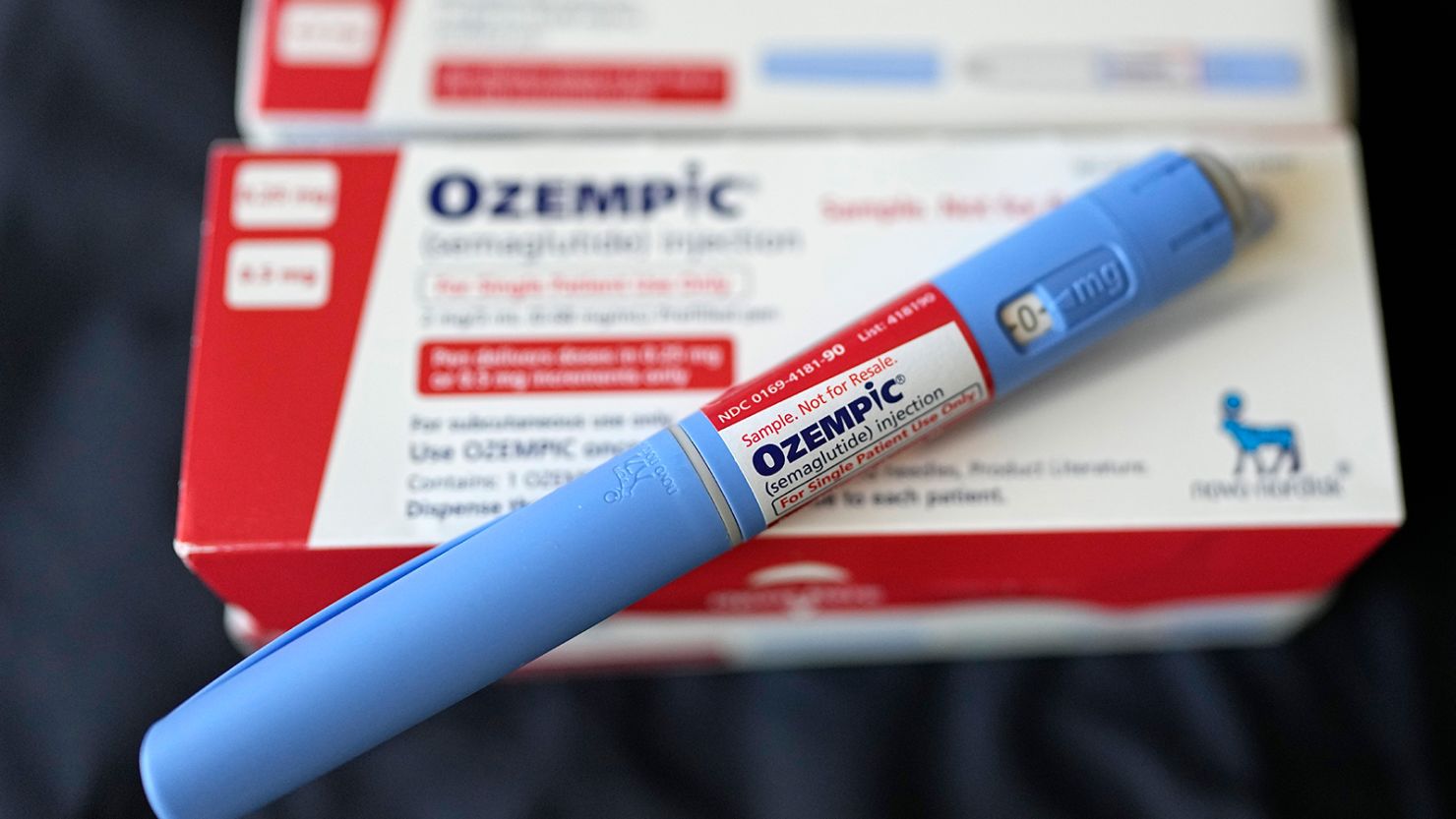As of 2017, it is reported that at least 75 percent of American adults are overweight, obese, or morbidly obese, so it is not surprising that more and more people are trying to lose weight. I know that we have all heard about the recently popular weight loss shots: Ozempic (Semaglutide), Mounjaro (Terzepatide), Wegovy, Zepbound, and many others. As of 2023 more than 8.2 million Americans have been prescribed Ozempic. And within its first year on the market, Mounjaro sales surpassed more than 5.2 billion dollars. (Desilver, 2024). It is expected that these numbers will be exceeded throughout this year, and the coming future. But what do these medications do, and why has it recently become a problem for many people?
These weight loss medications are a subcutaneous injection, typically given at home on a weekly basis. Ozempic: “1 – Helps your pancreas produce more insulin when your blood sugar is high. 2 – Helps prevent your liver from making and releasing too much sugar. 3 – Slows down flood leaving your stomach.” (Ozempic, 2024). Mounjaro is similar, it “enhances insulin secretion, improves insulin sensitivity, and decreases food intake” by activating GIP (glucose-dependent insulinotropic polypeptides) and GLP-1(glucagon-like peptide 1) receptors in the body. (Mounjaro, 2024).
Although the media has recently stated that these medications are mainly used to decrease hunger, so you don’t eat as much and it makes you lose weight, that was not their intended goal. They were intended to be used in Type 2 diabetics to improve blood sugar levels and decrease risk of heart disease. However, recent research has shown significant positive weight related changes in people taking these shots. Some of the medications also decrease the size of the stomach, making the person not eat as much. They can also influence the way your body responds to sugar.
Like previously mentioned, these medications were originally meant for Type 2 diabetic patients, so that they wouldn’t have blood sugar spikes after eating, but in non-diabetics, it still does the same thing. When you eat something high in sugar or carbohydrates, you will likely have a blood sugar spike. Your blood doesn’t actually need sugar, it is just the taxi driving it to where it needs to go, so your body doesn’t like these spikes. This causes your pancreas to create an insulin dump, releasing insulin into the blood stream, rapidly pushing the sugar out of the blood and into your cells. This causes a rapid blood sugar drop. Again, your body doesn’t like this. When you have a sudden blood sugar drop, your body gets confused and thinks that you are hungry, making you want to eat something high in carbs or sugar, leading to the constant cycle of blood sugar spikes and drops.
If your blood sugar doesn’t spike, then it won’t rapidly drop, leaving your body feeling like you are not hungry and you don’t need to eat right now. That is the initial effect people are seeing with these medications. Also, if you are taking one of these medications and eat something high in carbs or sugar, you likely won’t feel good after you eat, because it will still cause your blood sugar to increase, essentially fighting against what the medication is trying to do to your body. It can also make you nauseated, lightheaded, hot, and generally feeling miserable. This should lead people to following a low carb/ low sugar diet when they are on the medication, further assisting with a healthy diet and weight loss.
So, if these medications can be beneficial in helping you control your blood sugar and lose weight, why are they becoming a problem for people? “From January through November, the America’s Poison Centers reports nearly 3,000 calls involving semaglutide, an increase of more than 15-fold since 2019. In 94% of calls, this medication was the only substance reported.” (Goodman, 2023). “Even when used as directed by a doctor, people can have stomach and bowel side effects, including nausea, vomiting and constipation, especially when they start the drugs.” (Goodman, 2023).
Not all of these weight loss shots are created equal… there are a lot of knock off medications available, many have not been tested or approved by the FDA, additionally many of them have unknown chemical ingredients. Simply put, you don’t know how these medications will affect you. Once you inject that shot into your body, you can’t take it out and you can’t dilute, it is going to do what it’s going to do, and you just have to wait it out until it wears off. With these medications, they are supposed to be used in conjunction with a balanced diet, low in carbs and sugar, and high in protein. But most people don’t want to follow that diet, they want to eat their normal foods, and want the medication to be a magic fix and solve their weight and blood sugar problems for them. If you are eating in a way that you are basically fighting against the medication, you will have an increase in potential symptoms.
One last point to mention, you could be doing everything that you are supposed to do, diet, exercise, etc., and you can still have a bad outcome with these medications. Listed directly on their websites you can see the big warning that Ozempic is known to cause tumors and cancer. (Ozempic, 2024). Mounjaro’s website has the exact same warning, with the addition of possible pancreatitis, acute kidney injury, hypoglycemia, and more. (Mounjaro, 2024). These potential complications are in addition to potential allergic reactions. If you are considering taking any of the popular weight loss shots, that is 100 percent ok, however you need to do your research. Don’t just look at Facebook headline, or hear that your neighbor’s, sister’s friend had good success. You need to actually look at the data, see what the potential complications might be, talk to your doctor, and be willing to follow a healthy eating plan.
References:
Desilver, D. (March 21, 2024). As obesity rates rise in the U.S. and worldwide, new weight-loss drugs surge in popularity. Pew Research Center. https://www.pewresearch.org/short-reads/2024/03/21/as-obesity-rates-rise-in-the-us-and-worldwide-new-weight-loss-drugs-surge-in-popularity/#:~:text=Demand%20for%20weight%2Dloss%20drugs&text=That%20year%2C%20an%20estimated%208.2,as%20many%20as%20in%202019.
Goodman, B. (December 18, 2023). Poison centers see nearly 1,500% increase in calls related to injected weight-loss drugs as people accidentally overdose. CNN. https://www.cnn.com/2023/12/13/health/semaglutide-overdoses-wellness/index.html
Mounjaro. (2024). Once-weekly Mounjaro works differently than other type 2 diabetes medications1. Mounjaro Lilly. https://mounjaro.lilly.com/hcp/how-mounjaro-works?gad_source=1&gclid=CjwKCAjw26KxBhBDEiwAu6KXt8J5uK1DFTSkty-tePpucY02IXglRtmWLx_Nd7iL6cWUP42IMB6HnxoCHcAQAvD_BwE
Ozempic. (2024). How Ozempic Works. Ozempic. https://www.ozempic.com/why-ozempic/how-ozempic-works.html?showisi=true&&utm_source=google&utm_medium=cpc&utm_term=how%20does%20ozempic%20work&utm_campaign=1_All_Shared_BR_Branded_Specifics_2023&mkwid=s-dc_pcrid_676952449398_pkw_how%20does%20ozempic%20work_pmt_e_slid__product_&pgrid=158457130950&ptaid=kwd-450596717725&gad_source=1&gclid=CjwKCAjw26KxBhBDEiwAu6KXtwFGTkc9R-dTNy8h-oYKnT6zj4n3XV4TV3OZoInGhQsn5bF-VubQshoCVa8QAvD_BwE&gclsrc=aw.ds

